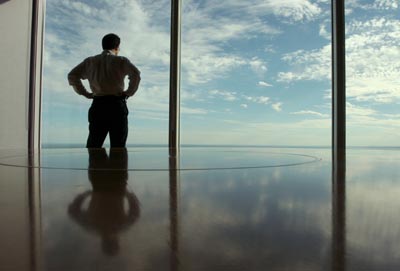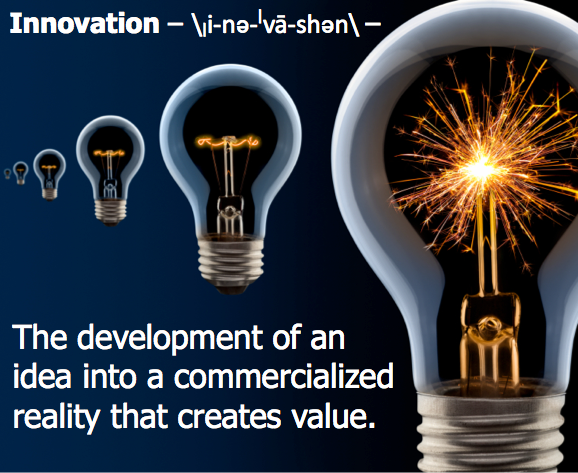 After 30+ years working with some of the best and brightest business leaders in the consumer products industry and now after 5 years consulting to businesses large and small in consumer products and other industries as well, I can truthfully say I’ve never met a CEO or senior leader that wasn’t smart. But I have seen their strategies time and again fail to produce the desired results. So what’s up? CEOs and senior business leaders can’t just hope for results beyond the status quo. They need to provide purpose beyond profits, execution beyond elocution, and innovation beyond effort.
After 30+ years working with some of the best and brightest business leaders in the consumer products industry and now after 5 years consulting to businesses large and small in consumer products and other industries as well, I can truthfully say I’ve never met a CEO or senior leader that wasn’t smart. But I have seen their strategies time and again fail to produce the desired results. So what’s up? CEOs and senior business leaders can’t just hope for results beyond the status quo. They need to provide purpose beyond profits, execution beyond elocution, and innovation beyond effort.
Purpose Beyond Profits– The job of the CEO is to get results so things like earnings and revenue growth and EBITDA mean something to them. But it has virtually no motivational impact on almost every other employee. And most CEO’s know this intuitively so they tie the incentive system of employees to the results they’re trying to produce. But for a variety of well-documented reasons, this is insufficient and actually reduces the discretionary effort of employees. Employees need a purpose beyond profits. And it doesn’t have to be a lofty goal like bringing joy to children around the world or saving lives by providing clean water or giving shoes to those who have none, though some companies are focused on doing just that. Regardless of industry or the size of business, it’s the job of the CEO to align  and reinforce inspiring purpose, value creation, and strategic direction to all employees. It’s not as easy as just creating a strategic plan and expecting everyone to march to it but it’s virtually guaranteed to produce better results.
and reinforce inspiring purpose, value creation, and strategic direction to all employees. It’s not as easy as just creating a strategic plan and expecting everyone to march to it but it’s virtually guaranteed to produce better results.
Execution Beyond Elocution– This one is the most perplexing to me yet I see it over and over. Why does a CEO, or any senior leader for that matter, hope for an organization to produce results beyond the status quo? It’s like hoping the new product development process that has been year after year churning out hundreds or thousands of line extensions to suddenly be capable of generating breakthrough innovations that will propel the company into the future. Or the manufacturing organization that has generated 3-4% savings suddenly is going to generate 10%. But most of the time, CEOs will create a strategic plan (and a terrific one at that) and then hold a series of town hall employee meetings to carefully, appropriately, and eloquently disclose what they believe everyone needs to hear to be able to capably execute. Not going to happen. Hope is not a strategy. Neither is serendipity. Great execution requires something beyond eloquent elocution. It requires action on the design of the business – its people, processes, or technologies – to align its capabilities with the strategic direction. The CEO can’t just articulate the strategic direction of the business. He or she needs to taken action on the strategic design of the business to build the capabilities needed to execute the plan.
 Innovation Beyond Effort– The late Cynthia Rabe, former Chief Innovation Officer at Intel and author of The Innovation Killer, said it best. “Consider this: would you rather own stock in a company where all employees… were encouraged to think of new and better ways to do things? Or would you prefer the company only asked the new product developers to think out of the box?” Yet in company after company, CEOs think of innovation only in the context of new products or services. Consequently, as a 2010 survey of thousands of businesses across all industries conducted by the National Science Foundation showed, only 9% of companies reported innovation in any process, 4% in manufacturing, 3% in logistics, and 7% in support activities. Yet most people know how to make their jobs, the processes they work in, or the technology they use more efficient and effective. Innovation is the development of an idea, any idea, into a commercialized reality that creates value either for customers or for the business. In other words, most all employees could be innovative and creating value. And most would be highly motivated to make a difference with their innovation capabilities. It is the job of the CEO to create the environment for great results, a culture that unleashes innovation beyond the expectations of everyday effort.
Innovation Beyond Effort– The late Cynthia Rabe, former Chief Innovation Officer at Intel and author of The Innovation Killer, said it best. “Consider this: would you rather own stock in a company where all employees… were encouraged to think of new and better ways to do things? Or would you prefer the company only asked the new product developers to think out of the box?” Yet in company after company, CEOs think of innovation only in the context of new products or services. Consequently, as a 2010 survey of thousands of businesses across all industries conducted by the National Science Foundation showed, only 9% of companies reported innovation in any process, 4% in manufacturing, 3% in logistics, and 7% in support activities. Yet most people know how to make their jobs, the processes they work in, or the technology they use more efficient and effective. Innovation is the development of an idea, any idea, into a commercialized reality that creates value either for customers or for the business. In other words, most all employees could be innovative and creating value. And most would be highly motivated to make a difference with their innovation capabilities. It is the job of the CEO to create the environment for great results, a culture that unleashes innovation beyond the expectations of everyday effort.
So, while most CEOs will go on developing great strategies and hoping for them to be successful only to find out later that it’s been another incremental year, great CEOs will do more. They’ll see to it they have purpose beyond profits, execution beyond elocution, and innovation beyond everyday effort.